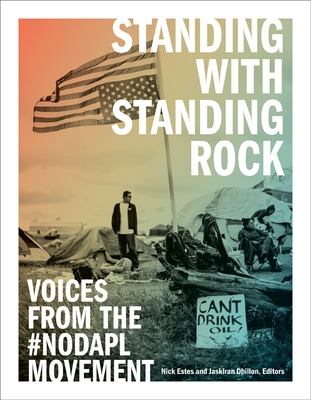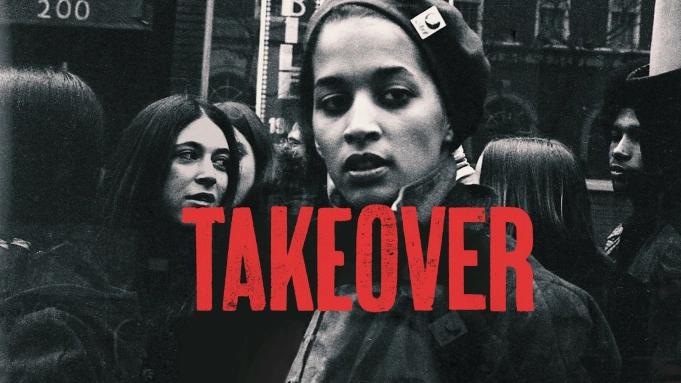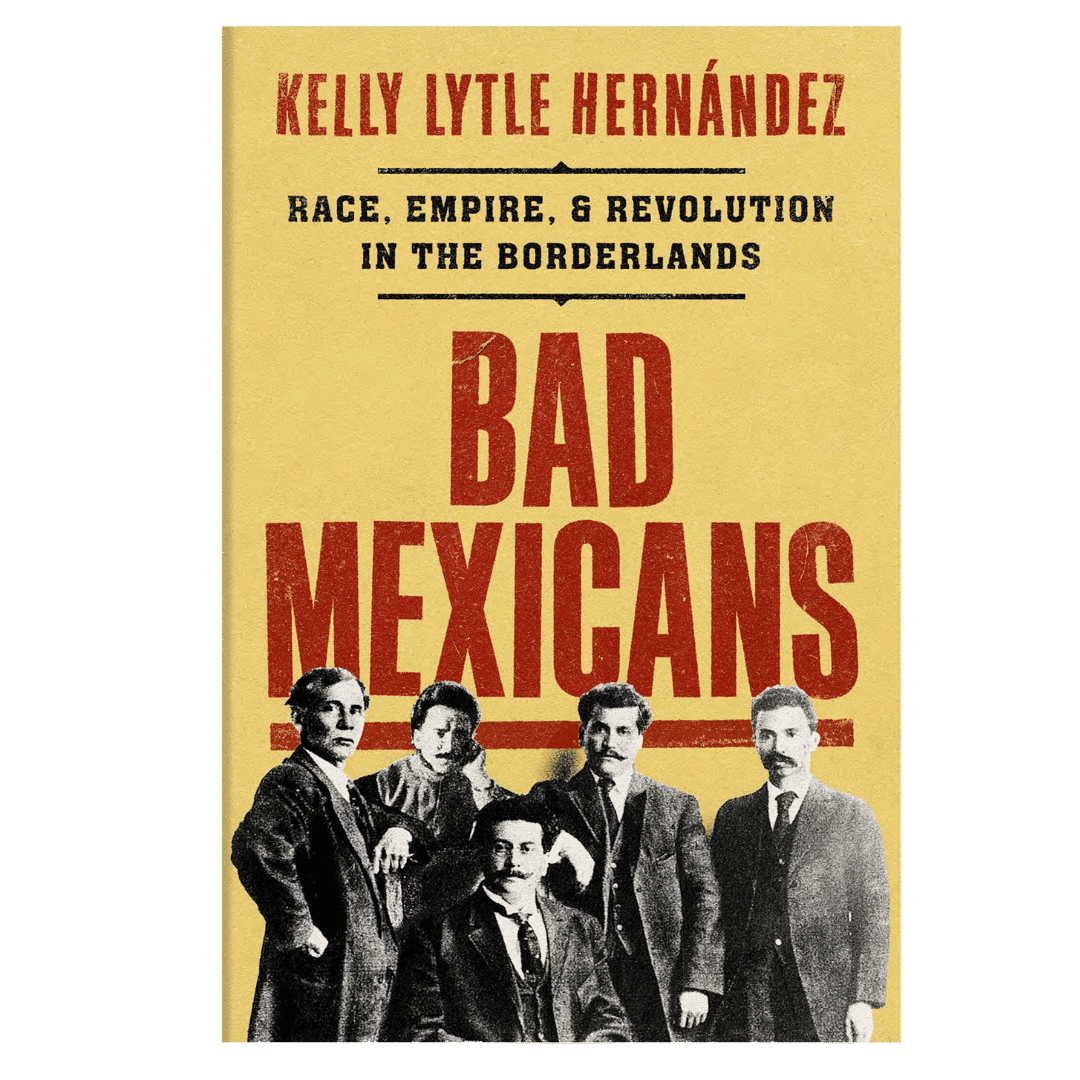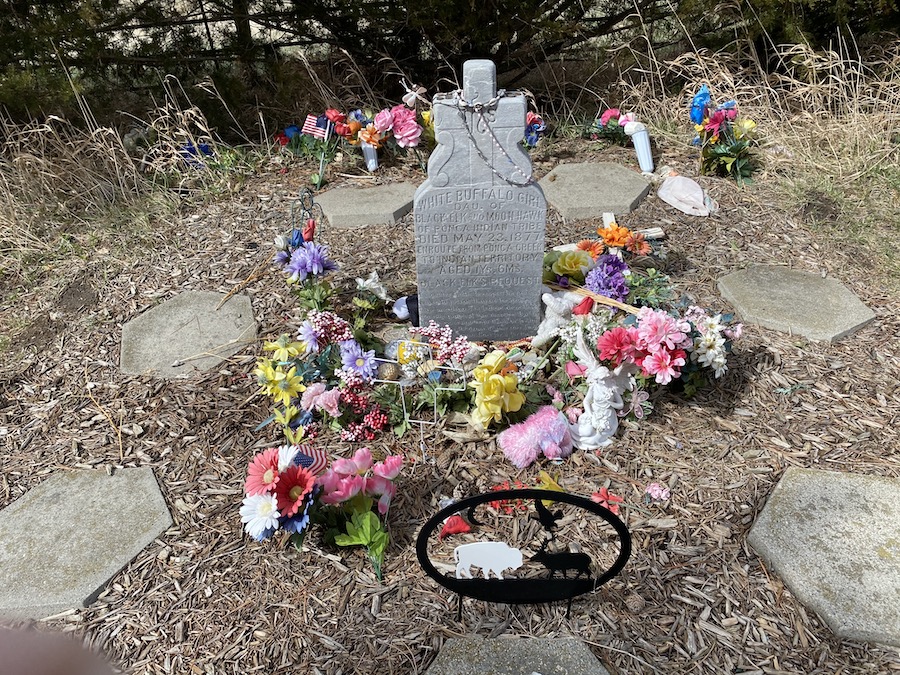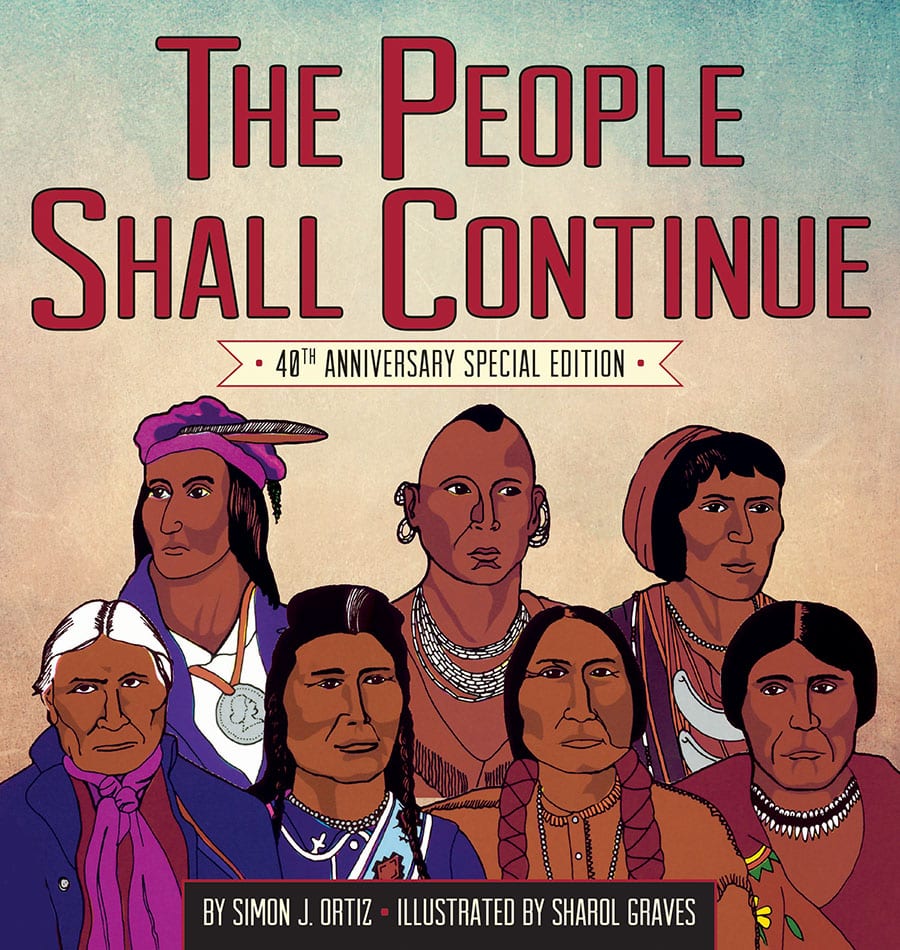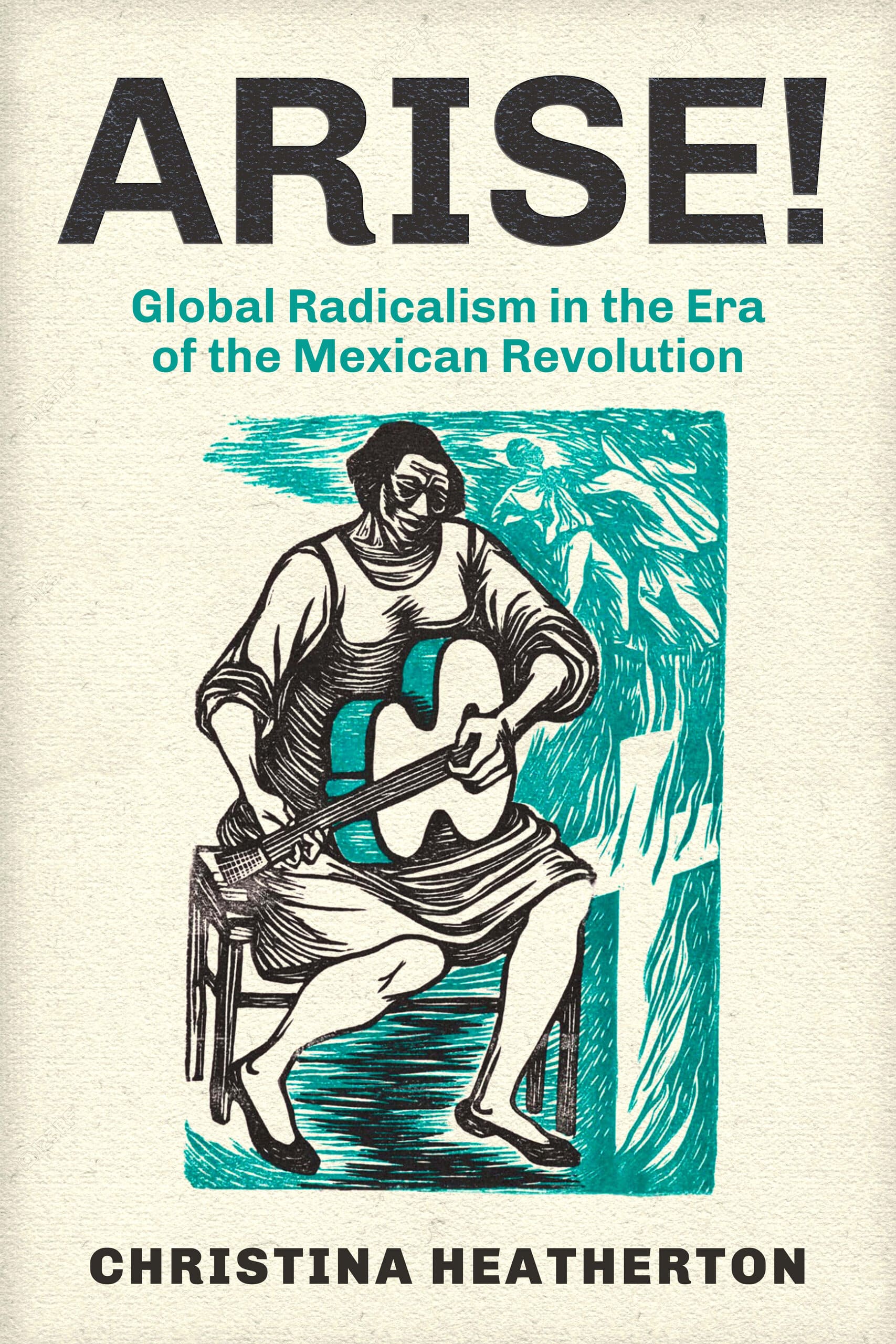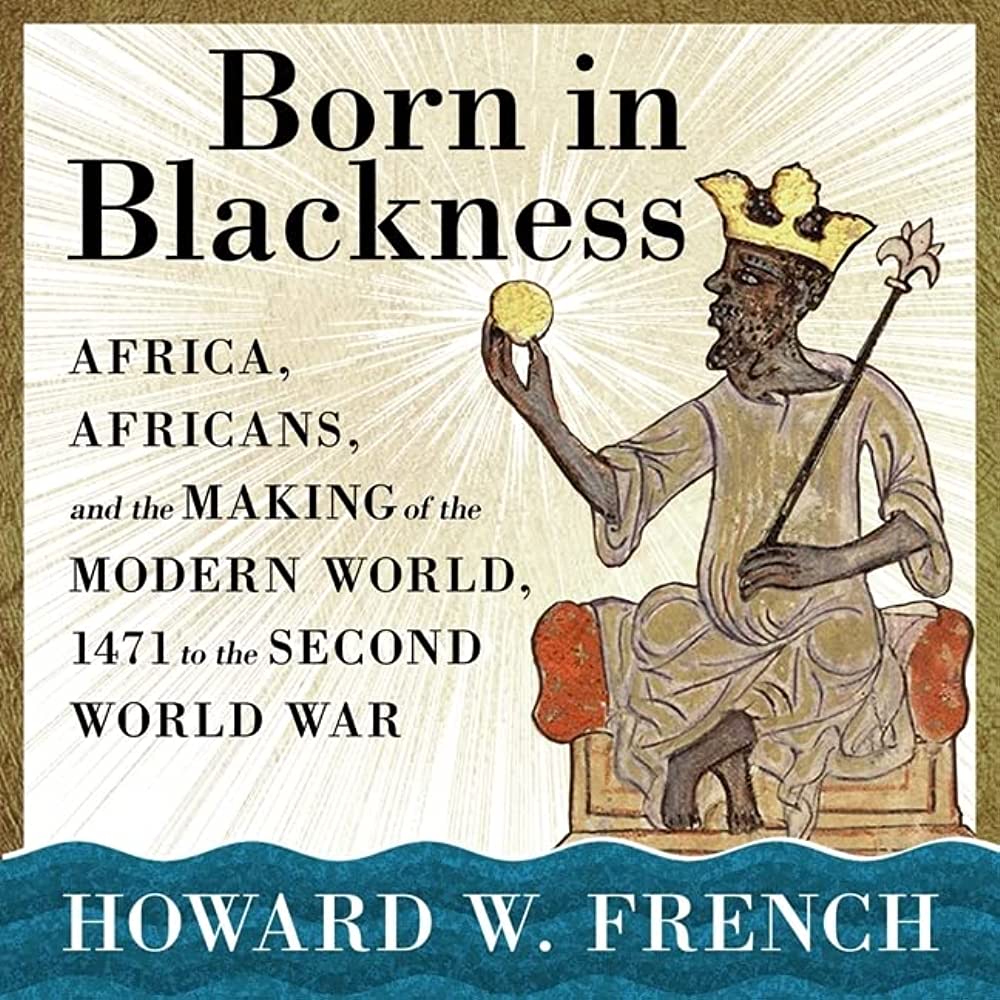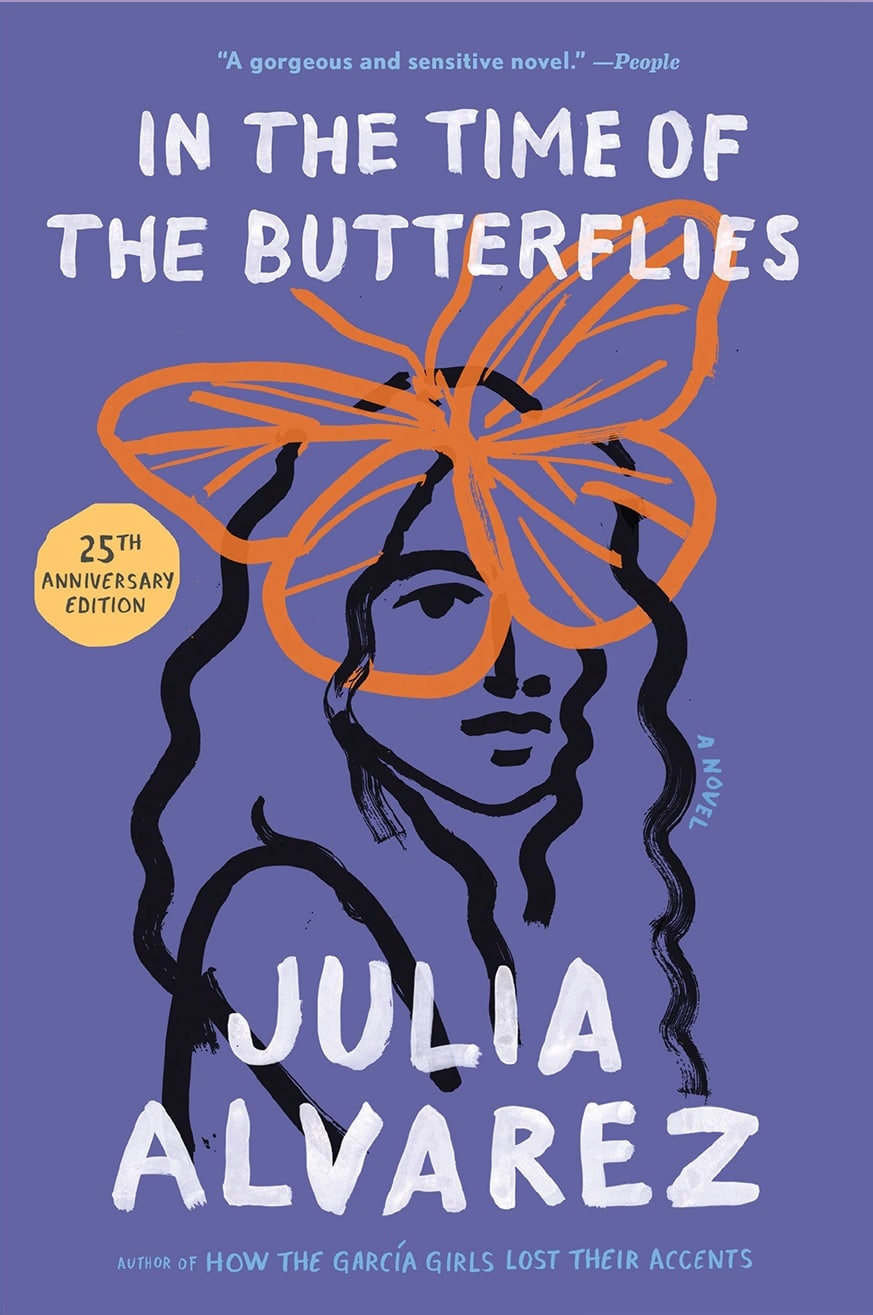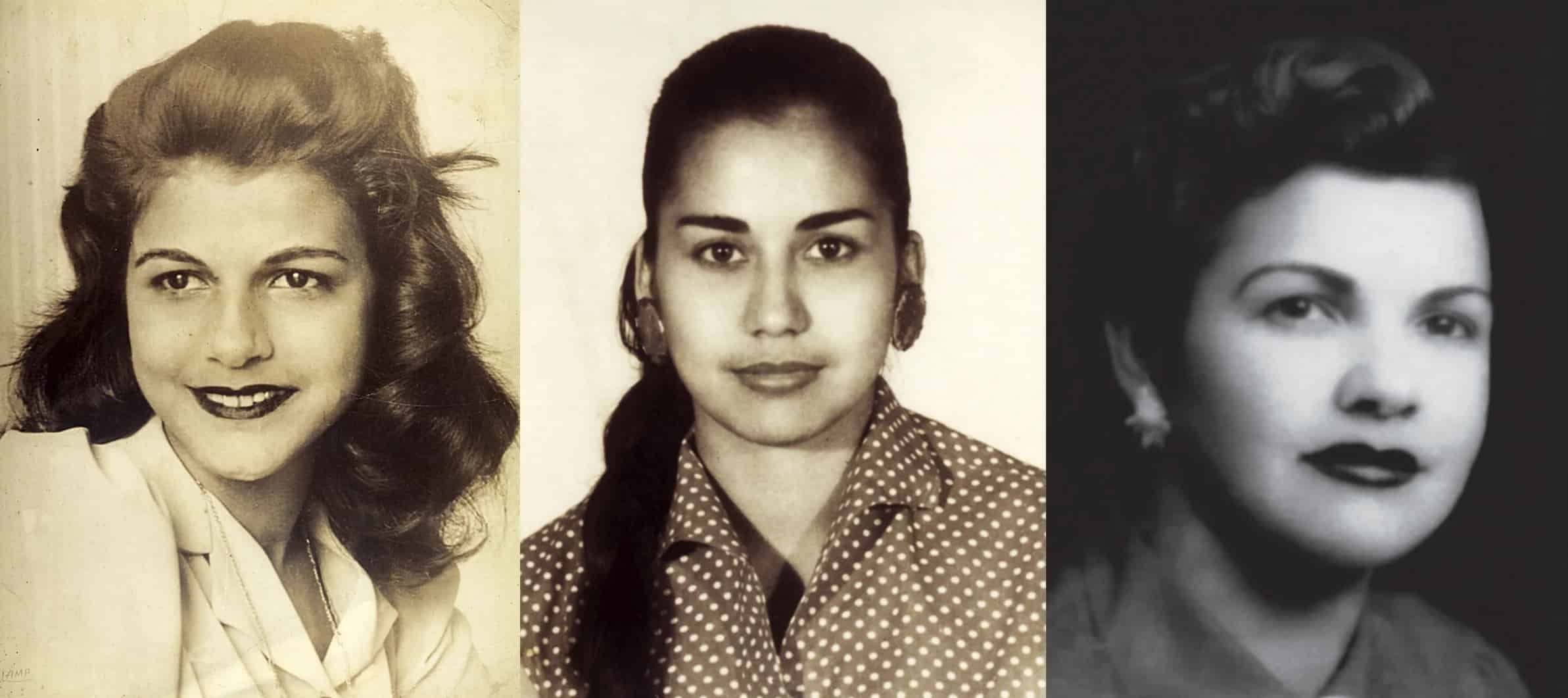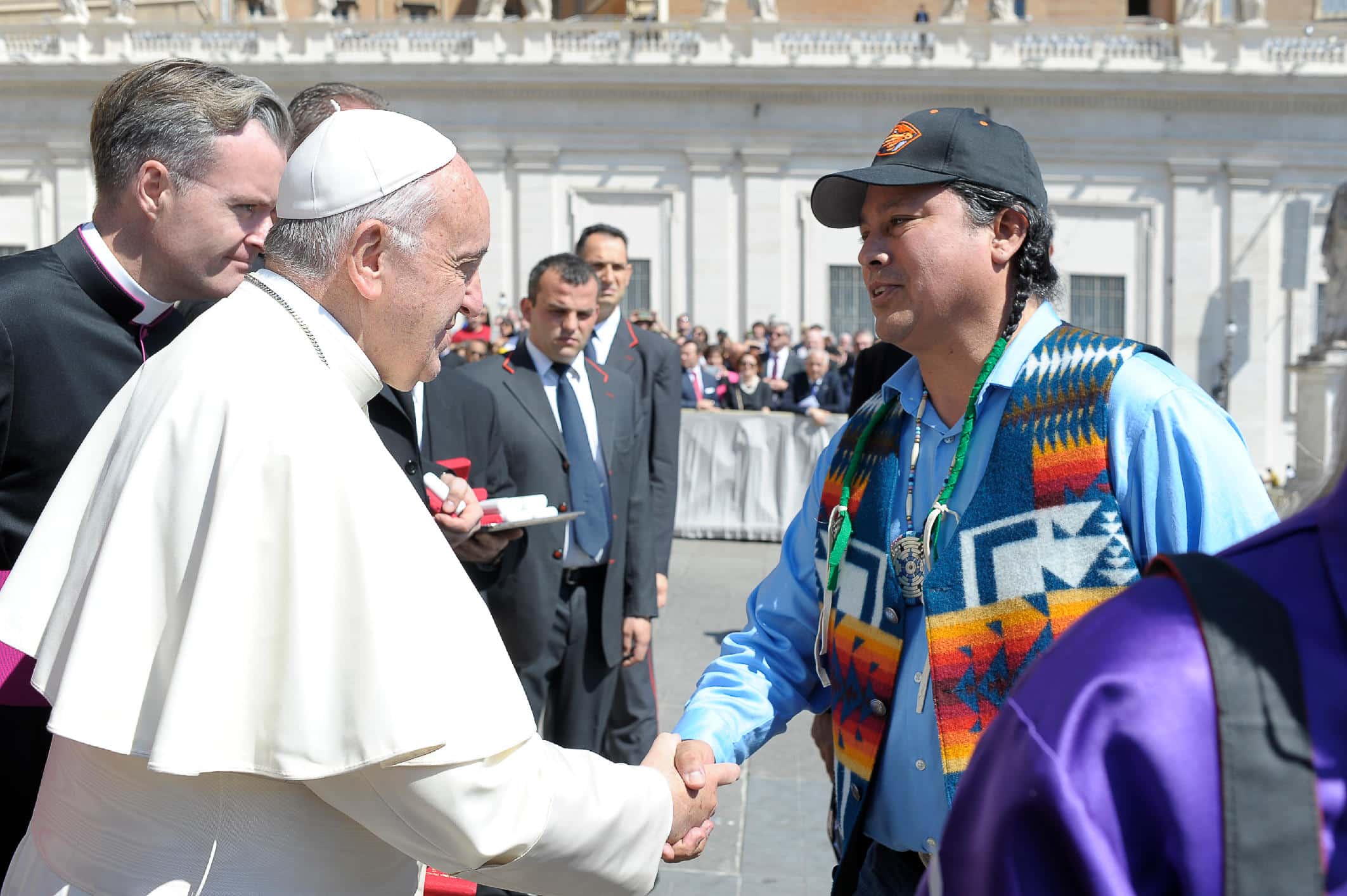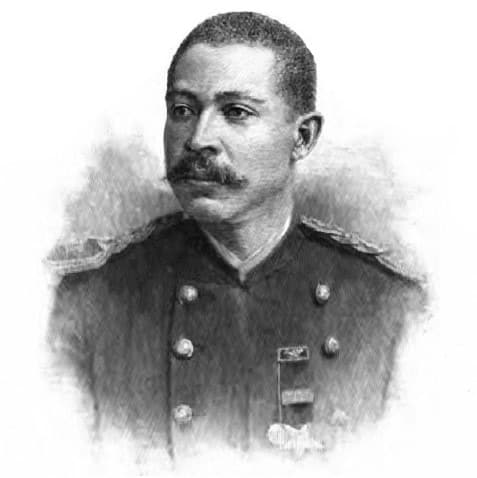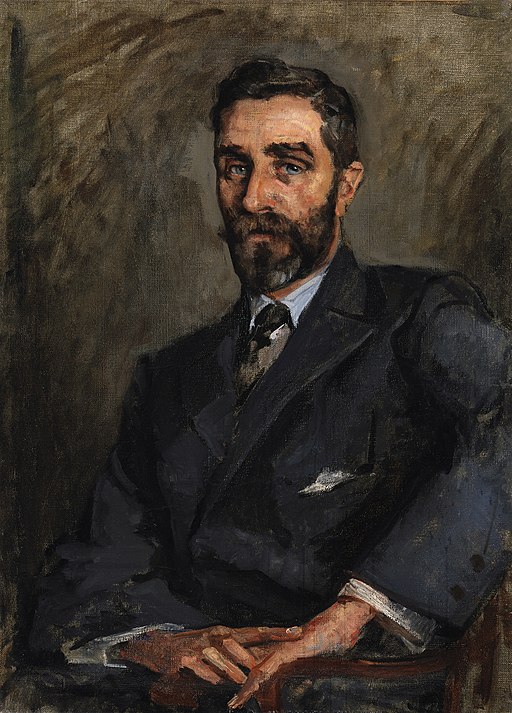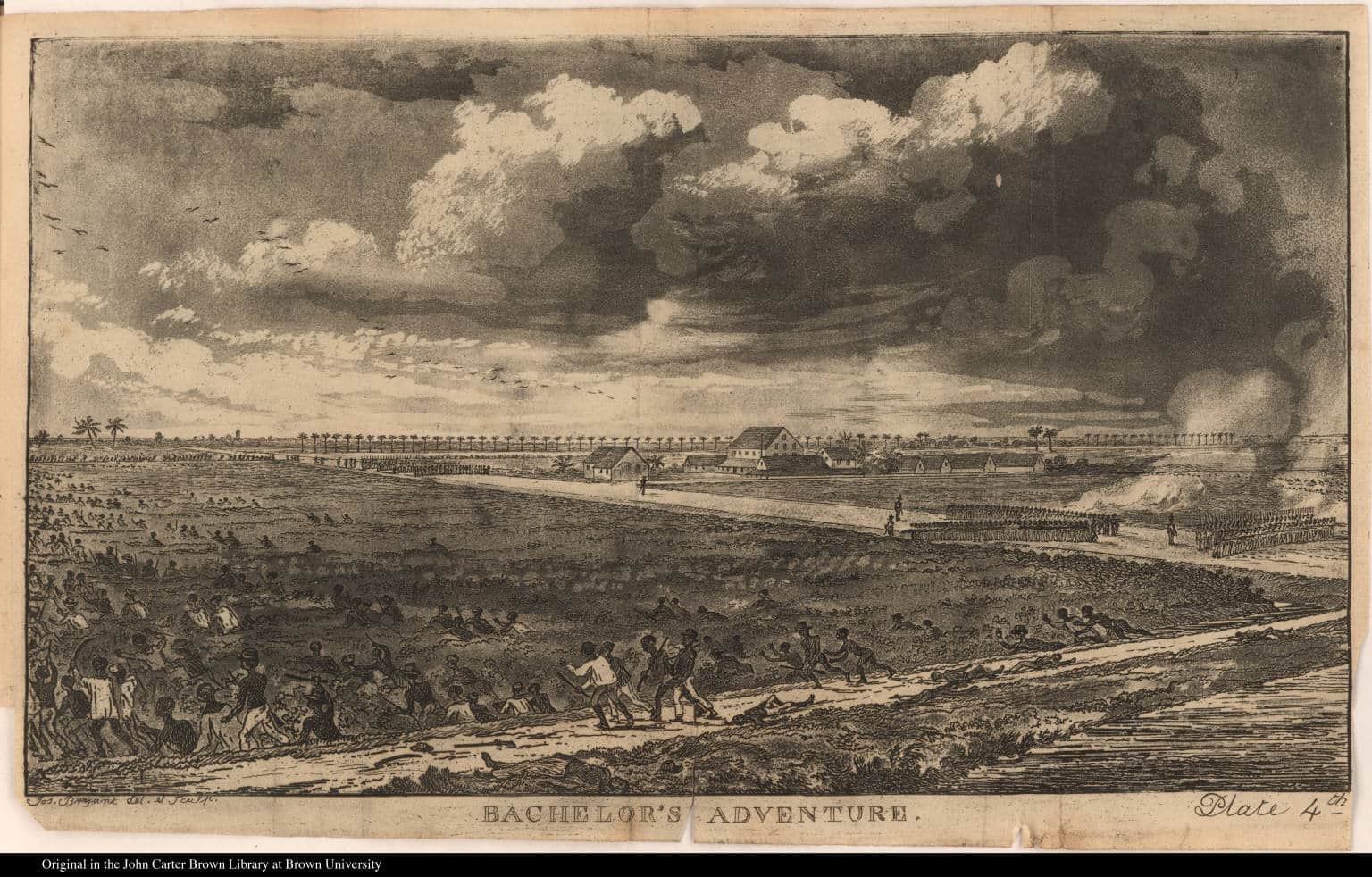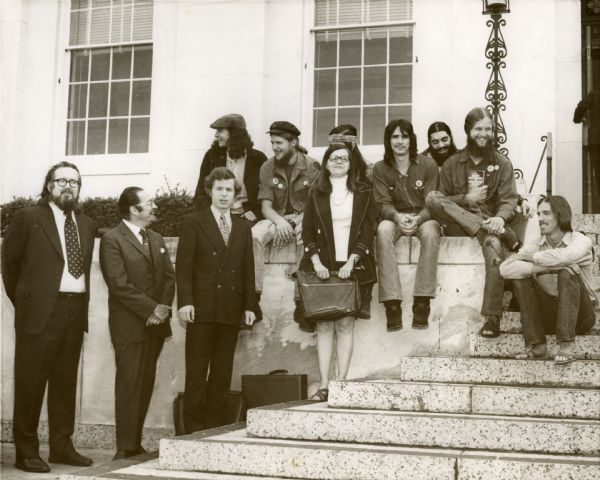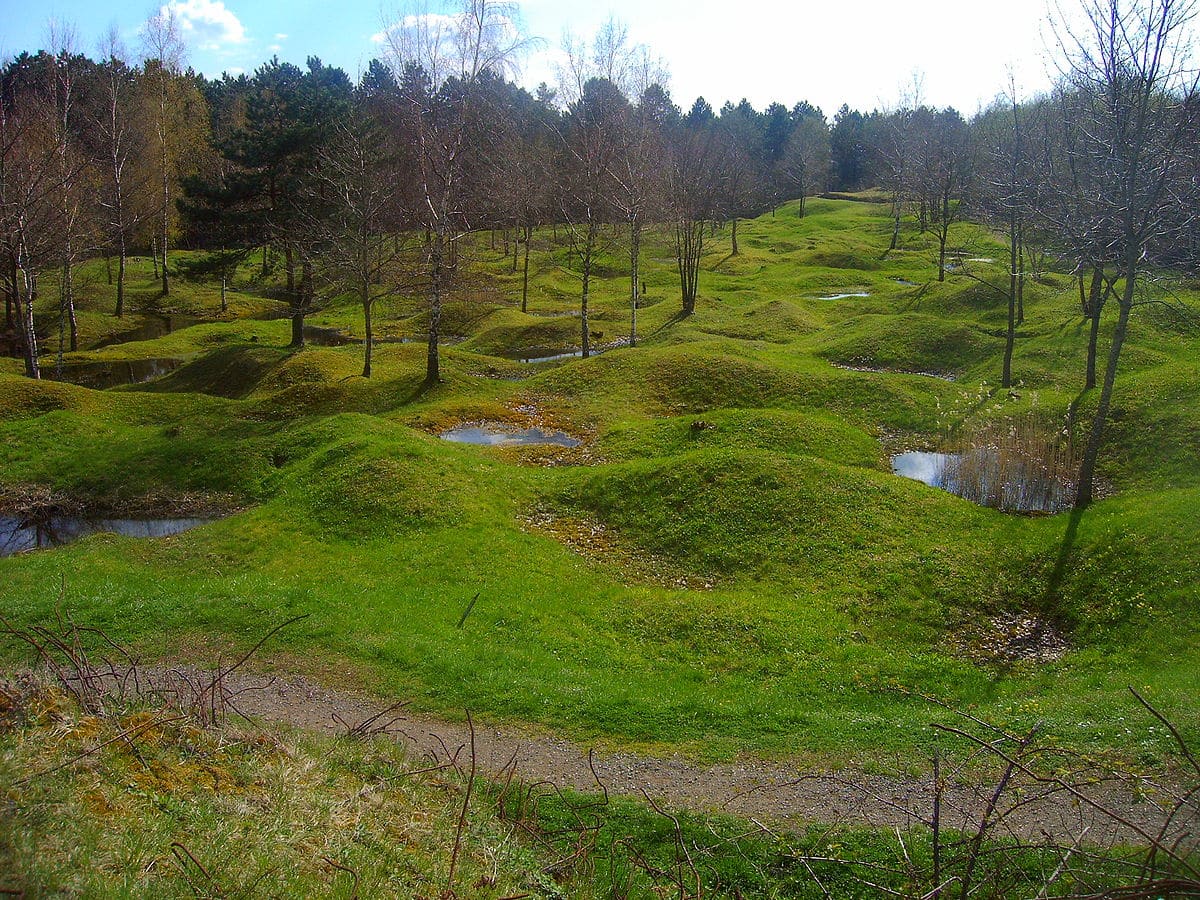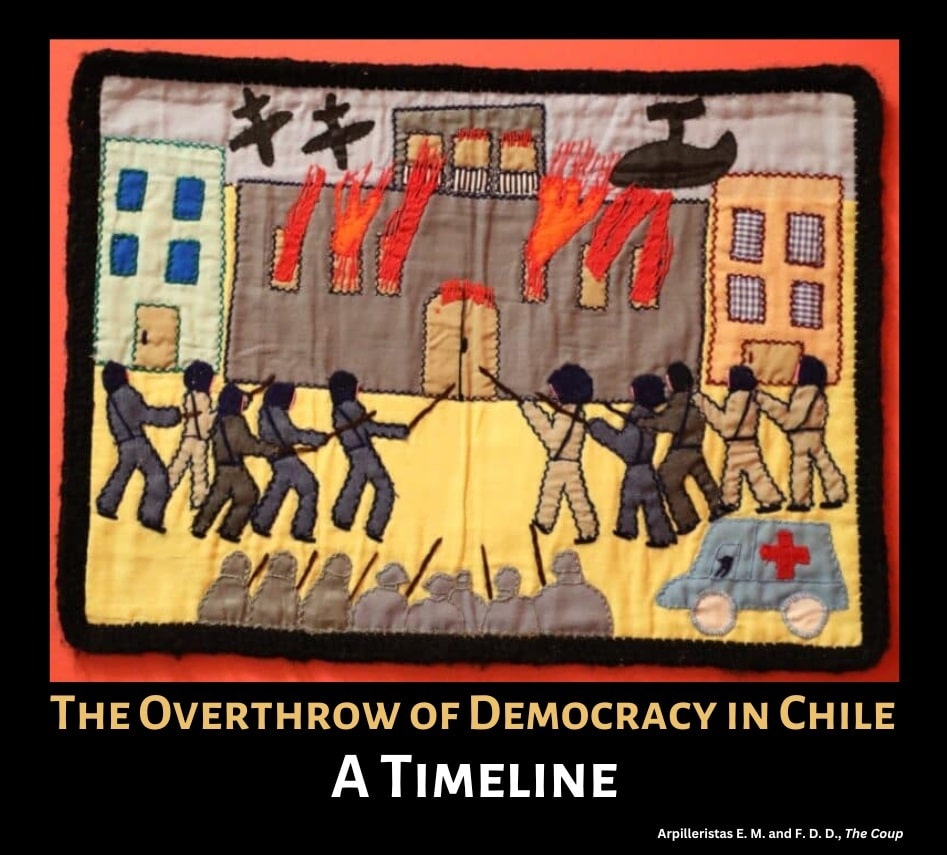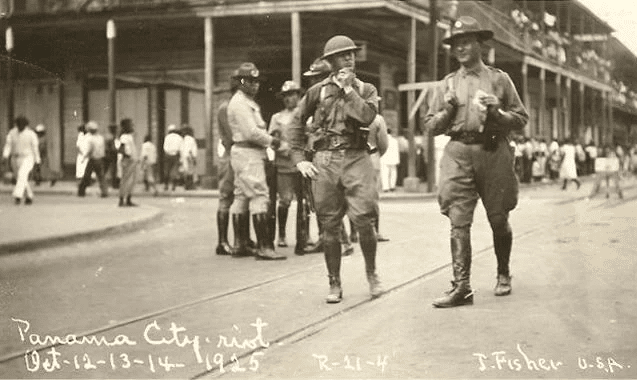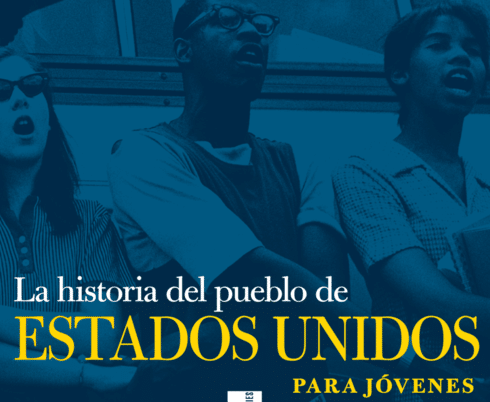Book — Non-fiction. Edited by Nick Estes and Jaskiran Dhillon. 2019. 448 pages.
Through poetry and prose, essays, photography, interviews, and polemical interventions, the contributors, including leaders of the Standing Rock movement, reflect on Indigenous history and politics and on the movement's significance.
Teaching Activity by Nick Estes (editor)
Continue reading
Film. By Emma Francis-Snyder. 2021. 38 minutes.
Takeover tells the story of the Young Lords’ 12-hour occupation of Lincoln Hospital in the South Bronx in 1970.
Continue reading
Book — Non-fiction. By Kelly Lytle Hernández. 2022. 384 pages.
Taking readers to the frontlines of the magonista uprising and the counterinsurgency campaign that failed to stop them, Kelly Lytle Hernández puts the magonista revolt at the heart of U.S. history.
Continue reading
Along the “Trail of Tears” in Neligh, Nebraska, a farmer signed a deed to return ancestral land to the Ponca Tribe.
Continue reading
Picture Book. By Simon J. Ortiz, illustrated by Sharol Graves. 2022. 32 pages.
This powerful telling of the history of the Native/Indigenous peoples of North America recounts their story from Creation to the invasion and usurpation of Native lands.
Teaching Activity by By Simon J. Ortiz, Illustrated by Sharol Graves
Continue reading
Book — Non-fiction. By Christina Heatherton. 2022. 336 pages.
This book tells the international history of radical movements and their convergences during the Mexican Revolution, reconstructing how this era's organizers found new ways to fight global capitalism.
Continue reading
Book — Non-fiction. By Howard W. French. 2021. 521 pages.
This sweeping history reveals a long-concealed history of trivialization and, more often, elision in depictions of African history throughout the last five hundred years.
Continue reading
Book — Fiction. By Julia Alvarez. 2010. 352 pages.
The story of Las Mariposas — “The Butterflies” — is about four sisters and their tragic deaths under Trujillo’s dictatorship in the Dominican Republic.
Continue reading
The murder of the Mirabal sisters — who clandestinely opposed the dictatorship of Rafael Trujillo in the Dominican Republic and were then brutally killed — has become an international symbol of resistance to violence against women.
Continue reading
Book — Non-fiction. By Gerald Horne. 2022. 632 pages.
A detailed history of counterrevolutionary forces in Texas state history.
Continue reading
After becoming governor of Florida in 1821, Andrew Jackson attacked the native and Black maroon community at Angola.
Continue reading
A delegation representing Native nations marched upon the Vatican and were successful in convincing the Vatican to revoke the Doctrine of Discovery.
Continue reading
Hoping to spark a movement in protest of the Belgian government’s role in its African colony, historian George Washington Williams wrote an open letter to Belgian King Leopold II exposing atrocities in the Congo.
Continue reading
The Casement Report was delivered before the British Houses of Parliament, providing firsthand accounts of the brutal violence inflicted upon the indigenous people and the land in the Congo Free State by settler colonialists acting on behalf of Belgium’s King Leopold II.
Continue reading
This was the largest uprising of the enslaved against their British overseers in Guyana. The uprising was ended after a few days, though it served as a catalyst for the abolition of slavery in British colonies soon thereafter.
Continue reading
Members of the Vietnam Veterans Against the War (VVAW) were arrested and erroneously charged with inciting violence at the 1972 Republican National Convention in Miami. They were all later acquitted after a lengthy and much publicized trial.
Continue reading
The First World War killed roughly 20 million people. Fighting transitioned from mainly human- and animal-powered to fossil fuel-powered technologies and accessing and protecting fossil fuel supplies became part of sustaining a powerful military. The Earth and the environment have suffered ever since.
Continue reading
Article. Timeline by Bill Bigelow. 2023.
A timeline of the overthrow of democracy in Chile — the fall of Salvador Allende and the rise of Augusto Pinochet.
Continue reading
Protesting rising rents and unsanitary conditions, tenants in Panama City, Panama were met with swift force and violence by U.S. soldiers, with six killed during the weekend.
Continue reading
Book — Non-fiction. By Norman Solomon. 2023. 240 pages.
Too often, our curriculum “makes war invisible.” Too often, the ravages of U.S. militarism go unexamined in our classes. This fact-filled book insists: Teach about this; people’s lives depend on it.
Continue reading
Book — Non-fiction. By Howard Zinn, adapted by Rebecca Stefoff with additions by Ed Morales. Translated by Hugo García Manríquez. 2023. 608 pages.
A Spanish translation of the young adult version of the best-selling A People’s History of the United States.
Continue reading
St. Louis Cardinals NFL linebacker Dave Meggyesy disobeyed league rules and refused to salute the flag during the pre-game playing of “The Star-Spangled Banner,” nearly fifty years before San Francisco 49ers quarterback Colin Kaepernick took a knee to protest police violence.
Continue reading
Book — Non-fiction. By Peter Linebaugh and Marcus Rediker. 2013. 448 pages.
A sweeping history of the role of the dispossessed in the making of the modern world.
Continue reading
Picture book. By Traci Sorell, and illustrated by Frane Lessac. 2021. 40 pages.
Twelve Native American kids present historical and contemporary laws, policies, struggles, and victories in Native life.
Continue reading
A national day of awareness for Missing and Murdered Indigenous Women and Girls and 2SLGBTQI+ people (MMIWG2S).
Continue reading

